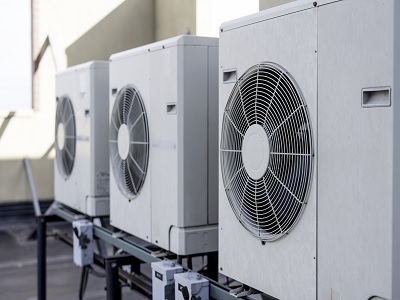Ductless HVAC systems are a great option. They are more environmentally friendly than traditional heating and cooling systems and don’t require ducts. For more information on ductless heating or cooling, please read the following:
What are ductless HVAC systems?
Ductless systems do not require ductwork. They use an evaporator coil, condenser, and condenser to cool your home. These systems are increasingly popular as they are more efficient and can be installed without major renovations.
How do they function?
Ductless HVAC systems don’t need ductwork. They use air handlers that mount on the ceiling or wall to bring conditioned air into the room. These are ideal for those who don’t have enough space or rooms that require even heating and cooling.
Ductless systems use a refrigerant as a heat transfer agent to move heat from indoors to outdoors. The indoor air handler heats the air and transfers it to outdoor units via refrigerant lines. The heat is then released into the air by the outdoor unit. Heating mode reverses the process. The outdoor unit collects heat from the outside air and transfers it to the indoor air handler via refrigerant lines.
What are the benefits of ductless HVAC systems?
Ductless systems can greatly improve the efficiency and effectiveness of your HVAC system. You can save money on installation costs and reduce energy consumption by not having to deal with ductwork. Ductless systems also offer many other benefits, including:
- Higher Efficiency– Ductless systems have a higher efficiency than traditional HVAC systems. They don’t need ductwork, which can leak air and make your system work harder.
- Better indoor Air Quality – Ductless systems don’t recirculate the air. This improves air quality. This is particularly beneficial for people with asthma or allergies as it helps to reduce triggers.
- Greater flexibility – Ductless systems offer greater flexibility and can be used in many different ways. They can be used to heat/cool specific areas in your home or office, rather than the whole space.
- Cost savings – Ductless systems can help you save money on both your monthly energy bills and the cost of installation. These systems are also more durable than traditional HVAC units, which can help you save even more over the long term.
Is there any drawback to ductless systems?
Before you decide whether to install a ductless system in your home, there are some potential disadvantages. They don’t have ductwork so they can’t heat or cool multiple rooms simultaneously. You will need multiple units if you want to heat or cool the entire house with a ductless system. Ductless systems also have a higher upfront cost than traditional HVAC systems. Ductless systems use more energy to circulate the air inside your home. The initial cost for installing a ductless system will typically be lower than that of installing a typical HVAC system.
Where is the best place to install a ductless system?
When deciding where to place a ductless system, there are many things to take into consideration. Climate is the most important consideration. A ductless system can be installed almost anywhere in your house if you live in an area that experiences mild Winters and cool Summers. If you live in an area that experiences very cold winters and hot summers, it is important to choose the right location for your ductless system.
Is it better to hire an HVAC contractor for the installation or can it be done via DIY?
Installing a central air system will require an HVAC contractor in Knoxville. Ductless systems cannot be used in conjunction with central air systems. You can install the system yourself if you don’t have a central system. Installation is simple and can be completed in just a few hours.
Interested in upgrading to a ductless system? Let J.C.’s Heating and Air help. Contact us today!
Like our Facebook page for more great info about HVAC services.
Areas Served: Corryton, Fountain City, Halls Crossroads, Farragut, Powell, Knoxville, Knox County, Oak Ridge, Lenoir City



